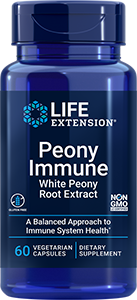|
Tuesday, October 28, 2014. The Acute Cardiovascular Care 2014 meeting held October 18-20 in Geneva was the site of a presentation by Dr Jin Wi of a protective effect for sufficient vitamin D levels against diminished brain function or death following sudden cardiac arrest.
"In patients resuscitated after sudden cardiac arrest, recovery of neurological function is very important, as well as survival," commented Dr Wi. "Vitamin D deficiency has been reported to be related to the risk of having various cardiovascular diseases, including sudden cardiac arrest. We investigated the association of vitamin D deficiency with neurologic outcome after sudden cardiac arrest, a topic on which there is no information so far."
The prospective study included 53 patients at Severance Cardiovascular Hospital in Seoul, Korea who were resuscitated from sudden cardiac arrest of presumed cardiac cause. Neurologic outcome was assessed by Cerebral Performance Category scores six months following hospital discharge. Analysis of serum 25-hydroxyvitamin D levels uncovered deficiency, defined as having levels lower than 10 nanograms per milliliter, in 31 patients.
While 29% of vitamin D-deficient subjects were no longer living at six months, there were no deaths among the sufficient group. Sixty-five percent of deficient subjects had poor neurologic outcome six months after being discharged from the hospital in comparison with 23% of those who were sufficient. Multivariate logistic analysis uncovered a 7.13 higher risk of poor neurologic outcome in association with vitamin D deficiency in comparison with having sufficient levels of the vitamin.
"Patients with vitamin D deficiency were more likely to have a poor neurological outcome or die after sudden cardiac arrest than those who were not deficient," Dr Wi observed. "Nearly one-third of the patients who were deficient in vitamin D had died six months after their cardiac arrest, whereas all patients with sufficient vitamin D levels were still alive."
"Vitamin D deficiency increased the risk of poor neurological outcome after sudden cardiac arrest by seven-fold," he noted. "The only factors that had a greater impact on poor neurological outcome were the absence of bystander CPR or having a first monitored heart rhythm that was non-shockable."
"Our findings suggest that vitamin D deficiency should be avoided, especially in people with a high risk of sudden cardiac arrest," Dr Wi added. "People are at higher risk if they have a personal or family history of heart disease including heart rhythm disorders, congenital heart defects and cardiac arrest. Other risk factors for cardiac arrest include smoking, obesity, diabetes, a sedentary lifestyle, high blood pressure and high cholesterol, and drinking too much alcohol."
"A large randomized clinical trial is needed to find out whether supplements of vitamin D can protect high risk groups from having a sudden cardiac arrest," he concluded.
|








